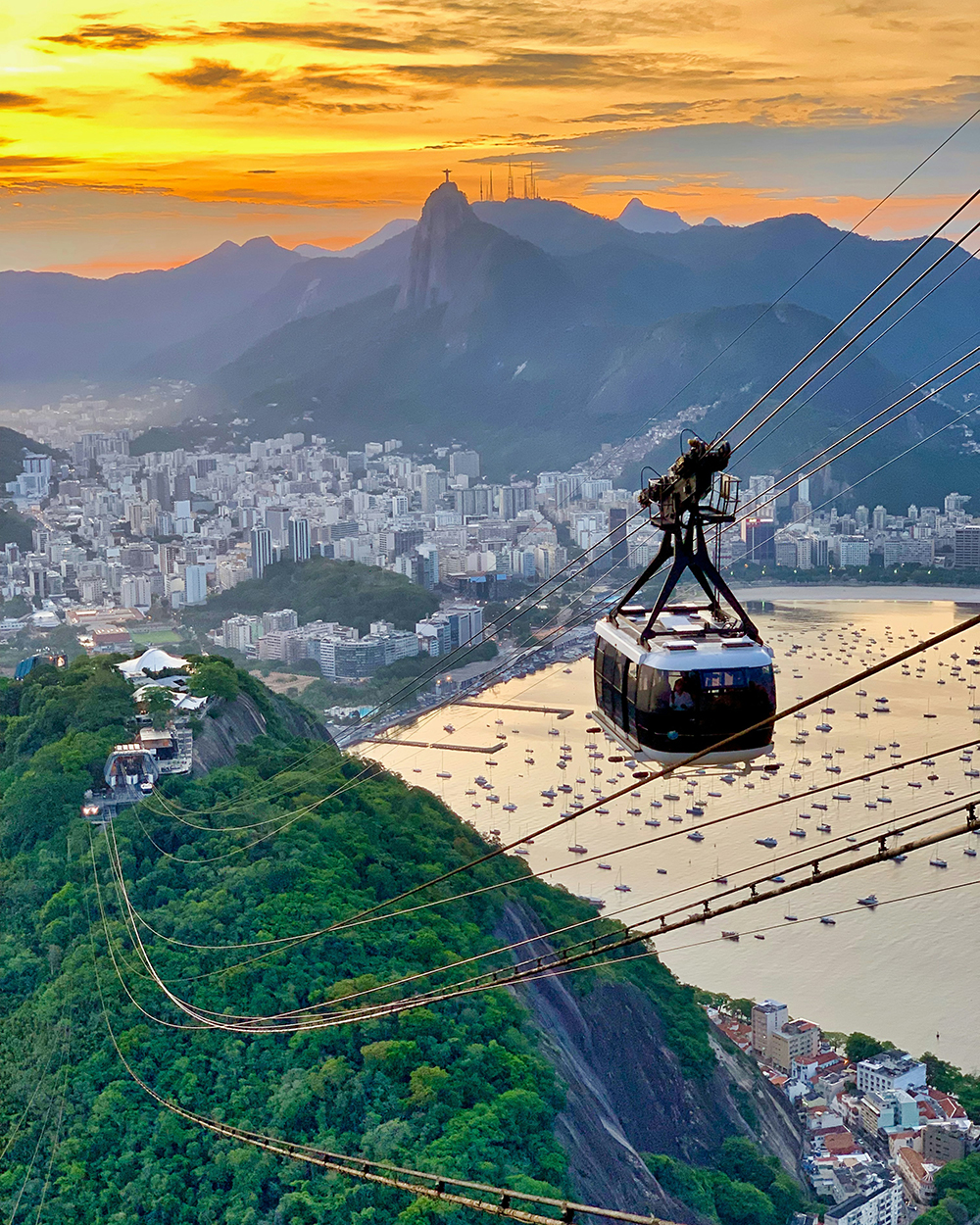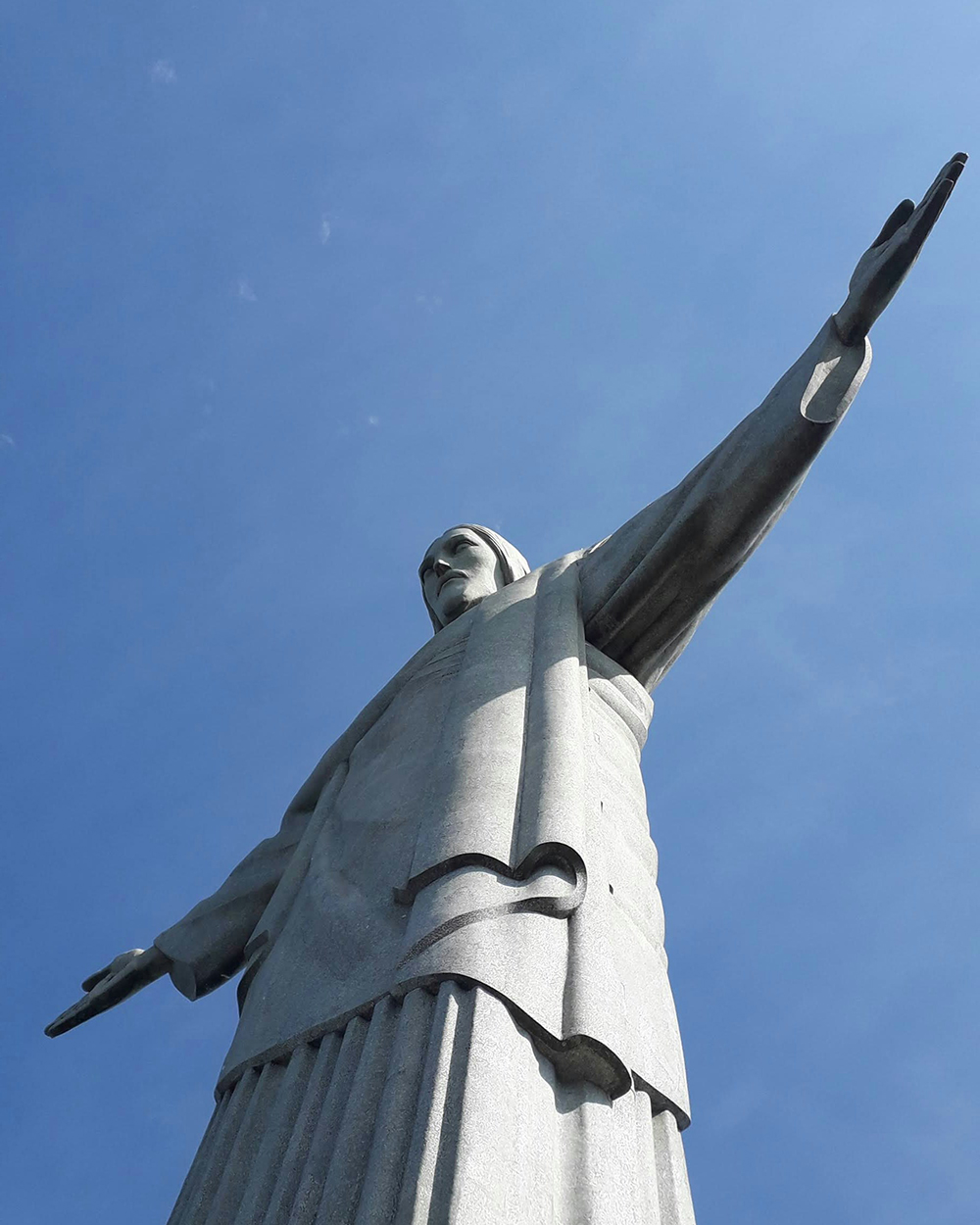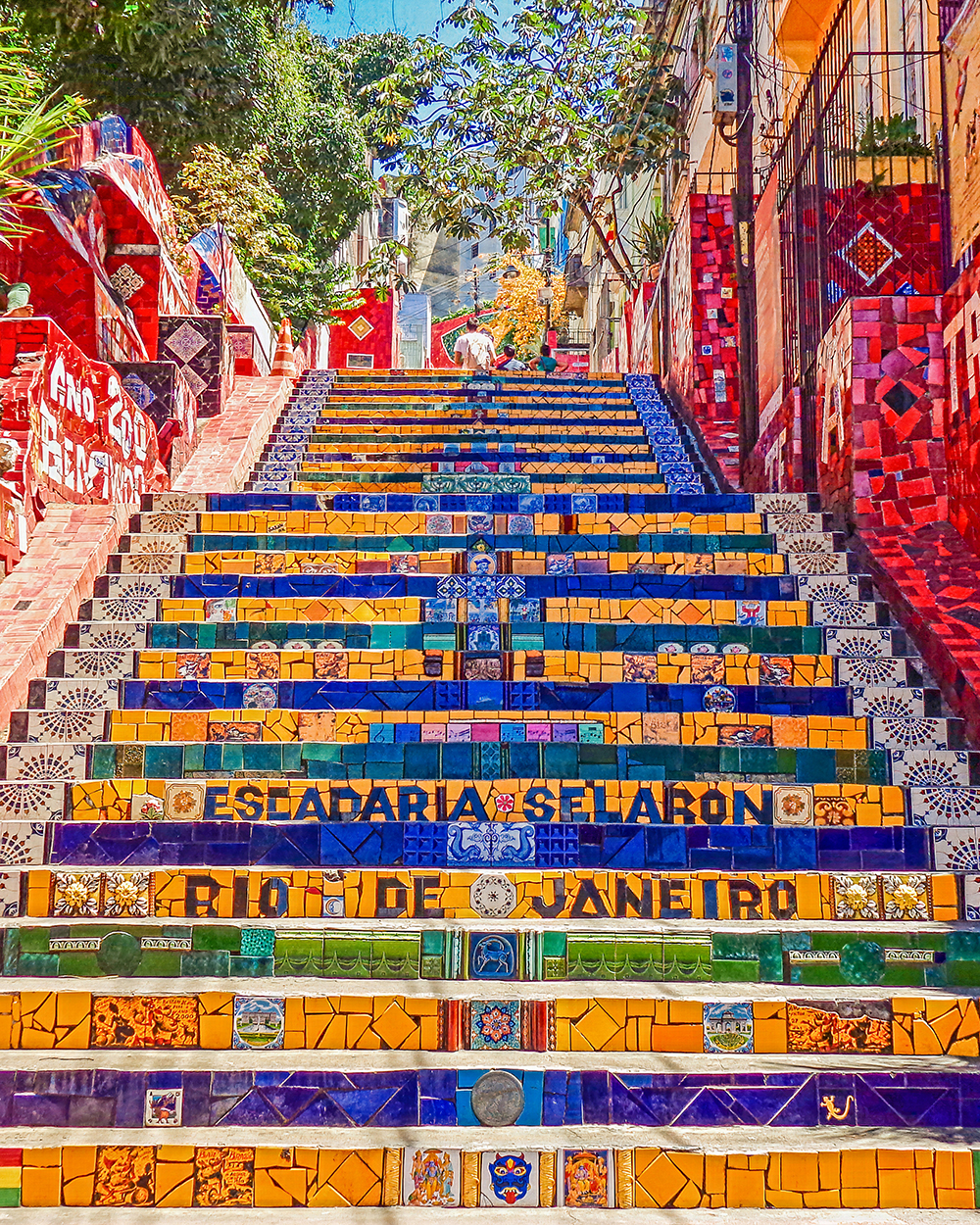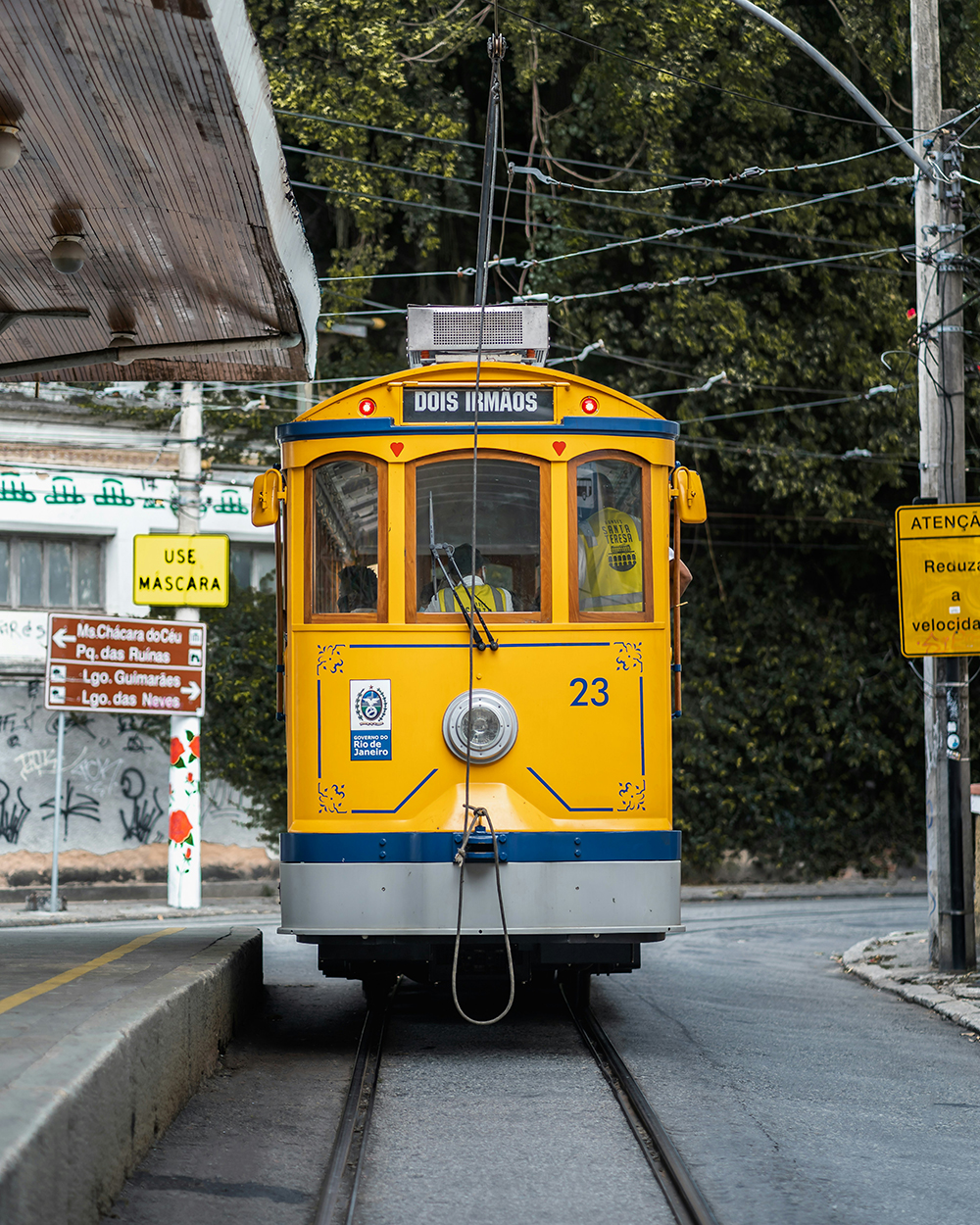Destination
Welcome to Rio de Janeiro!
Rio de Janeiro shines as a travel destination where dramatic nature and big-city energy meet for the perfect mix – ocean and forest, iconic landmarks and everyday scenes, early-morning calm and late-night celebration. Whether you’re chasing viewpoints, sampling street snacks, exploring galleries, or just letting the sea set your schedule, the city meets you with color and warmth. It’s a destination that invites you to slow down, look up, and carry a bit of its rhythm home.
From Airports to Venue
From Rio de Janeiro–Galeão International Airport (GIG)
Galeão (GIG) is Rio’s main international airport. It is located on Ilha do Governador, about 25–30 km from the conference venue depending on the route.
Taxi or Ride Apps (Easiest Option)
This is the most convenient way to reach the hotel.
- Travel time: 35–55 minutes, depending on traffic.
- Estimated cost: R$70–R$90 (UberX) / R$120-R$140 (Uber Black & Confort), R$100–R$150 (regular taxi).
- Taxis are available directly outside baggage claim. Ride apps have designated pick-up areas.
Note: Airport Bus is not recommended for first-time visitors due to multiple transfers and longer travel times (1.5–2 hours).
Note on International Arrivals
Most international flights that arrive directly in Rio de Janeiro land at Galeão International Airport (GIG). However, some travelers flying internationally via São Paulo – Guarulhos (GRU) connect to a domestic flight to Rio, and these domestic legs may land at Santos Dumont Airport (SDU) instead of GIG. If your itinerary includes a connection in São Paulo, double-check which Rio airport your final segment uses, as travel times to the Sheraton differ between GIG and SDU.
Also, note that São Paulo has more than one airport, and transfer times between GRU and the other airports – like Congonhas (CGH) – may take up to 4 hours.
From Rio de Janeiro–Santos Dumont Airport (SDU)
Santos Dumont handles most domestic flights and is located downtown, much closer to the South Zone.
Taxi or Ride Apps (Recommended)
The simplest way to reach the Sheraton.
- Travel time: 20–35 minutes.
- Estimated cost: R$60–R$80 (UberX) / R$80-R$100 (Uber Black & Confort), R$60–R$80 (regular taxi).
- Taxis line up at arrivals, and ride app pick-ups are clearly marked.
Taxi / Ride Apps
Uber, 99, and Cabify operate widely across Rio and are the fastest way to move between neighborhoods. They are reliable and usually cheaper than regular taxis.
All airports have clearly marked ride-app pick-up zones.
Metro
Rio’s metro is clean and safe, but note that the Sheraton is not close to a metro station. The closest stations are Nossa Senhora da Paz station (Ipanema) or Antero de Quental station (Leblon), a short ride away:
If you prefer public transport from central Rio, the typical route is: Metro Line 1 or 4 → Exit in Ipanema/Leblon → Ride app to hotel
This combination works well during peak traffic hours.
Practical Information
- Payment: Taxis accept cash and some accept cards. Ride apps accept international credit cards.
- Safety: In Rio, it’s normal and advisable to use ride apps at night instead of walking long distances.
- Luggage: If you have several suitcases, ride apps or taxis are strongly recommended.
- Rush hour: Traffic is heaviest on weekdays 7:00–10:00 and 17:00–20:00. Travel times to the Sheraton can double during these periods.
Rio de Janeiro’s climate is subtropical, with average temperatures between 25°C (77°F) and 42°C (108°F) year-round. Winter, from June to September, is the coolest and driest season, with minimum temperatures around 20°C (68°F) during the day and 16°C (60°F) at night.
Attire in Rio de Janeiro is generally casual and relaxed, although during work hours, men tend to wear suits and ties and women wear more elegant clothing. During the day, light and comfortable clothing is ideal due to the warm climate. In the evening, especially in more upscale restaurants, it’s common to dress a little more formally, but still light and elegant. A light sweater is sufficient for winter evenings.
The official currency in Rio de Janeiro is the Brazilian Real (R$ / BRL). Credit and debit cards are widely accepted in hotels, restaurants, and shops, though it’s useful to carry a small amount of cash for taxis, kiosks, street vendors, or small businesses. ATMs are available throughout the city, but it’s best to use machines located inside banks, malls, or hotels for safety. Currency exchange services can be found at airports, banks, and authorized exchange offices.
The official language of Rio de Janeiro, and all of Brazil, is Portuguese. While English and Spanish may be spoken in hotels, airports, and major tourist areas, they are less common in local neighborhoods. Learning a few basic Portuguese phrases can greatly enhance your experience and interactions. Many signs in tourist zones are bilingual (Portuguese/English), especially in museums, cultural centers, and transportation hubs.
Recommended Transportation Options
- Ride apps (Uber, 99, Cabify): Most convenient and widely used.
- Metro: Clean and efficient; best for moving between Botafogo, Copacabana, Ipanema, Leblon.
- Taxis: Available everywhere.
Bike rentals: Tembici bikes along the beach for short rides.
Walking
Rio is walkable in neighborhoods like Leblon, Ipanema, Jardim Botânico, Lagoa, Copacabana, and Botafogo.
- Sidewalks vary in width and quality.
- Use crosswalks when possible; cars do not always yield.
- At night, most locals prefer taxis or ride apps over long walks.
Rio de Janeiro has dedicated services to support both locals and tourists in case of emergencies.
-
General Emergency (Police, Fire, Ambulance): Dial 190
-
Fire Department / Ambulance: 193
-
Medical Emergency (SAMU – Mobile Emergency Service): 192
-
Tourist Police (DEAT – Delegacia Especial de Apoio ao Turismo): +55 (21) 2334-6802
Rio has a dedicated tourist police unit called ‘Delegacia Especial de Apoio ao Turismo (DEAT)’. They assist visitors with incidents involving theft, lost documents, scams, or any safety-related issue. DEAT officers are trained to help foreign tourists and often have staff who speak English or Spanish. Located in Leblon, this specialized unit assists foreign visitors. -
BPTur (Tourist Police Battalion): +55 (21) 2332-7943
Safety:
- Use ride apps at night
- Keep phones secure while walking
- Avoid bringing valuables to the beach
Power Outlets and Adapters
- Voltage: 110V or 127V in most of Rio (some hotels use 220V; the Sheraton typically provides universal outlets—confirm on arrival).
- Frequency: 60Hz
Socket type: Although Brazil uses Type N sockets (three round pins), most outlets – especially in hotels – are designed to also accept Type C plugs (two round pins). If you are coming from a country that uses Type C, you will usually not need an adapter.
If your equipment doesn’t use two round pins (Type C), be sure to bring a universal travel adapter to avoid compatibility issues.
Tipping isn’t mandatory in Rio de Janeiro, but it’s often found at the end of the bill as a “suggestion.” Generally, it’s customary to tip 10% or 12% of the bill in bars, restaurants, and delivery services. Hotels often include service charges in bills. Taxi drivers don’t require tips, although most passengers round up the fare if they’re satisfied with the service. Luggage carts at the airport are free.
Do’s
- Greetings: Handshakes are common in professional settings; friends often greet with a cheek kiss.
- Beach etiquette: Bring your own towel or sarong; personal space is closer than in some countries.
Small talk: Brazilians appreciate friendly conversation. - Safety awareness: Stay alert with phones and bags, especially around crowded beaches.
Don’ts
-
- Don’t bring valuables to the beach. Only essentials.
- Don’t swim in the ocean when the red flags are up on the beach. Waves in Rio can be very strong. Trust the warnings even if you are an experienced swimmer.
- Avoid walking alone late at night in unfamiliar areas.
- Don’t expect rigid schedules. Rio runs on a relaxed sense of time.
- Don’t photograph people (especially vendors) without asking.
- Smoking: Prohibited inside restaurants, malls, hotels, and most public indoor areas.




![]()
The Cognitive Science Society is pleased to announce the establishment of the CogSci Grove which aims to mobilise cognitive scientists to offset carbon emissions associated with their professional activities.